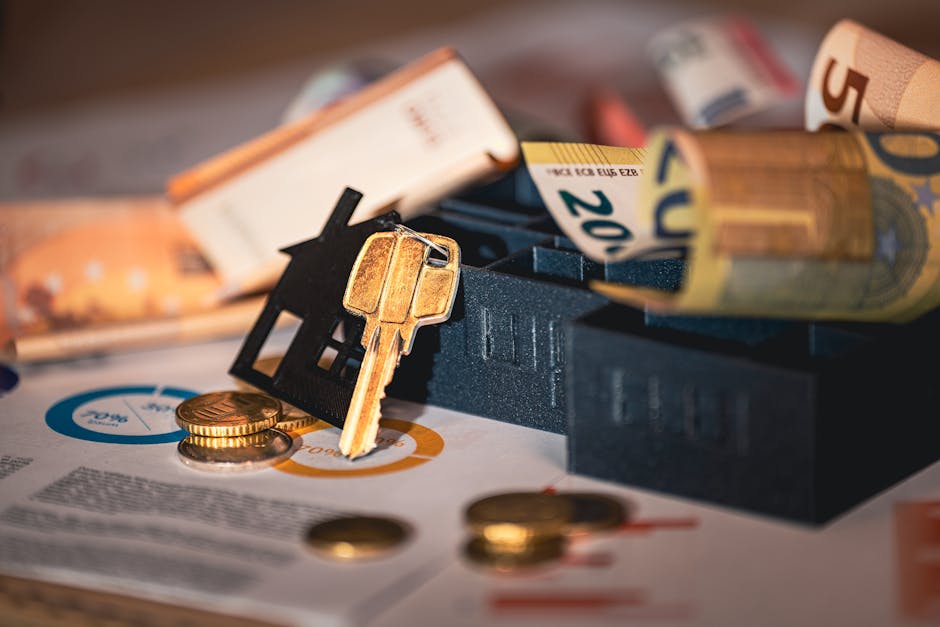Invest in Intangible Assets: Unlock Wealth with Skills & Networks
In today’s fast-paced world, the notion of growing wealth isn't just about stocks and real estate; it's about harnessing the invisible, the intangible assets we all possess. As a personal finance enthusiast, you may have read about investing in tangible items, but have you ever considered how your skills, networks, and experiences might fuel your financial growth? Understanding and leveraging these intangible assets could be the secret link to achieving financial independence. Let's explore how investing in your intangible assets can transform the way you approach wealthbuilding and create a sustainable financial future.
Understanding Intangible Assets: The New Currency of Wealth

Intangible assets refer to non-physical resources that hold value. These can range from professional skills and qualifications to your social network and experiences. Unlike tangible assets, which you can see and touch, these are often overlooked in traditional investment strategies. However, they can play a crucial role in creating wealth.
According to a report by Harvard Business Review, organizations that focus on their intangible assets outperform their competitors. In personal finance, this translates to investing in your knowledge and relationships, which can yield significant returns over time.
Skills Development: The Key to Expanding Your Wealth Portfolio

The first step in maximizing your intangible assets is to invest in your skills. The job market is constantly evolving, making it essential to stay relevant. Consider the tech-driven changes of the past decade. Learning new skills, such as coding, digital marketing, or financial literacy, can open doors you didn’t even know existed.
For instance, many people undervalue basic financial skills. Understanding personal finance can save you money in the long run, as demonstrated in this comprehensive guide on budgeting. Moreover, online platforms like Coursera or LinkedIn Learning offer affordable resources to enhance your skill set, often with certifications that make your resume pop.
Networking: Building Financial Bridges

Your network may indeed be your net worth. Understanding the financial ecosystem around you can significantly affect your investment potential. Networking is not just about attending industry events; it’s about forging genuine relationships with people who can help you grow.
For example, individuals who actively participate in community organizations often find unique investment opportunities, be it local startups or collective community projects. Investing in your relationships pays off when such opportunities arise. According to a study from Moz, relationships built on trust often lead to mutually beneficial financial arrangements.
Additionally, you can explore how social networks shape investments for deeper insights into this dynamic.
Experience: The Teacher You Didn’t Know You Needed

Next to skills and networking, your experiences—both personal and professional—serve as invaluable assets. These life lessons can guide your financial decisions, helping you avoid costly mistakes and enabling you to make informed choices.
Think about how every setback can teach you something new about financial responsibility or investment prospects. For instance, someone who has navigated a financial crisis might develop more robust fiscal strategies compared to those who haven’t faced such challenges.
Utilizing experiences can also help in identifying sort of investment opportunities that align with your passions and strengths. Transform your life story into wealth by recognizing the valuable lessons you've learned along the way, as detailed in this insightful article on leveraging personal history for financial gain.
Uniting Skills, Networks, and Experiences: A Triad of Growth

To effectively invest in your intangible assets, it’s essential to merge your skills, networks, and experiences. For instance, imagine you've developed financial literacy skills. By networking with people in finance, you could gain insights that enhance your skillset even further, perhaps discovering a unique investment strategy that leverages your life experiences and connections.
The Power of Continuous Learning: Adapt or Risk Stagnation

In a world where industries morph at a rapid pace, continuous learning cannot be stressed enough. Ensure you’re constantly augmenting your skills through online courses and webinars. Furthermore, consider attending workshops or seminars that can enrich your network while you learn innovative investment techniques.
Individuals who are adaptable and eager to learn are better positioned to handle financial fluctuations or seize burgeoning investment opportunities. In fact, according to a recent article from Harvard Business Review, adaptability and resilience are key traits of successful investors.
Utilizing Technology: A Modern Approach to Intangible Asset Investment

Meanwhile, digitization plays a massive role in how we invest in ourselves and our networks. Platforms like LinkedIn not only help you connect with industry leaders but also allow you to showcase your skills to potential employers or clients.
Moreover, consider the profound role of social media. By engaging thoughtfully with personal finance communities, you can share your experiences and learn from others, enhancing your own knowledge while expanding your network.
A prime example of this is micro-investing, where you can use apps to invest spare change into a portfolio. This approach aligns well with the concept of investing in your hobbies, as referenced in this article on leveraging hobbies for financial gain.
The Emotional Aspect: Mental Well-being and Financial Decisions

Don’t forget that managing emotions is also a part of the investment game. The psychology of spending can heavily influence your financial decision-making. Understanding your triggers and the emotional aspects of financial transactions can lead to better choices.
For instance, creating a budget can directly reflect your values and priorities, fundamentally changing how you view your resources. Read more on transforming your financial choices through psychological understanding to delve into this further.
Community-Building: Invest in Local Development

Investing in your community can be as rewarding as traditional financial avenues. By participating in local development projects, whether through monetary funding or active volunteering, you not only create stronger ties within your community but also position yourself to reap financial rewards in the long run.
The concept of investing in ecological or social projects aligns well with ethical investing trends. Discover the potential advantages of social equity programs in your area.
Final Thoughts: The Journey Ahead for Intangible Asset Investment
Investing in your intangible assets is not a one-time effort; it’s a lifelong journey. With skills, networks, and experiences acting as cornerstones in your personal finance strategy, harnessing these assets can pave the way for extraordinary financial growth.
Be ready to embrace lifelong learning and remain adaptable in the face of evolving markets. Additionally, don't forget to evaluate your current network of contacts; they can provide immense value if cultivated thoughtfully. As you embark on this journey, remember: your greatest investment lies within you.
Ready for your next steps? Consider starting a skills development plan today, reaching out to a mentor, or diving into a community project. The power to expand your wealth is inherently yours—go make it happen!



